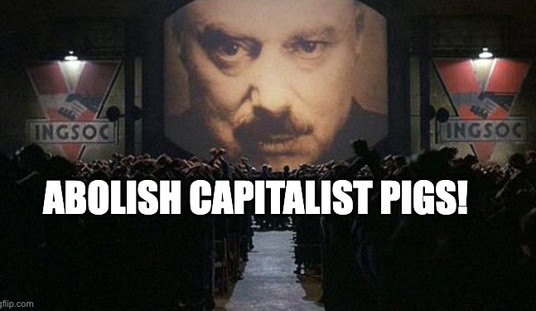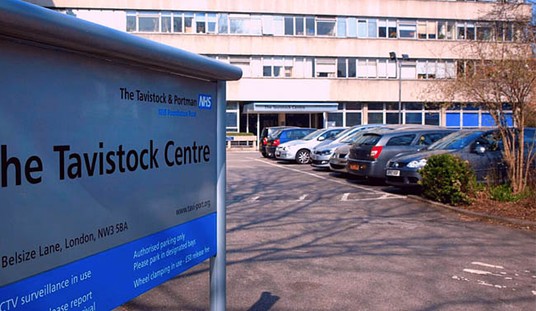The new Quinnipiac University and ABC/Washington Post national surveys out this week converge on one key conclusion: as the election nears, President Obama is sinking to historic lows among the group most consistently hostile to him.
Throughout his career on the national stage, Obama has struggled among white men without a college education. But in these latest surveys, he has fallen to a level of support among them lower than any Democratic nominee has attracted in any election since 1980, according to an upcoming National Journal analysis of exit polls from presidential elections.
Though pollsters at each organization caution that the margins of error are substantial when looking at subgroups such as this, each poll shows erosion within that margin of error for Obama with these working-class white men. The new Quinnipiac poll shows Obama attracting just 29 percent of non-college white men, down from 32 percent in their most recent national survey in April, according to figures provided by Douglas Schwartz, April Radocchio and Ralph Hansen of Quinnipiac. The ABC/Washington Post survey found Obama drawing just 28 percent of non-college white men, down from 34 percent in their May survey, according to figures provided by ABC Pollster Gary Langer. Romney drew 56 percent of the non-college white men in Quinnipiac and 65 percent in the ABC/Washington Post survey.
Digging into the crosstabs of our ABC/Washington Post poll it’s clear that Obama has a significant problem with independent voters. On every measure, independents are significantly more disappointed with the president and more open to a Mitt Romney message.
While 45 percent of voters overall say they approve of Obama’s handling of the economy, just 37 percent of independents believe that. Obama has a 12 point advantage among all voters on the issue of “who has presented a clearer plan for dealing with the economy – Obama or Romney?” But among independents that flips to an eight point advantage for Romney.
Even on the issue of Romney’s record in business, independent voters are more sympathetic to the Republican. Among all voters, more thought that Romney in his work as a corporate investor did more to cut jobs than create them (42 percent to 36 percent). But among independents, that flips to a six point advantage for Romney – 43-37 percent.
GlobeScan, a market-research firm, released a 23-country study last week showing that 58 percent of U.S. citizens “strongly agree” or “somewhat agree” that the rich deserve their wealth — a slight increase from a similar survey in 2008.
The findings come at a time when tax cuts for the rich, Mitt Romney’s wealth and Occupy Wall Street have all been hot topics in the 2012 campaign cycle…
The United States was one of only six countries surveyed where a majority thought the rich deserved their wealth. It ranked number three, with only Australia and Canada having more favorable views toward the rich. In Greece, just nine percent thought so.
[A] big chunk of President Obama’s 9.5 million-vote advantage [in 2008] is probably gone. Let’s break this down. According to exit polls, 44.8 million Republicans showed up to vote in 2004 while only 41.4 million did in 2008. Almost all those 3.4 million Republicans who stayed home have been energized by Mr. Obama’s agenda and are now eager to vote against him.
Gallup found in April that Republicans were five points more likely to vote than Democrats. More recent measures, including by the Pew Research Center in June, show Republican voters displaying more intense interest than Democrats. If 2008 stay-at-home Republicans vote, Mr. Obama’s margin would shrink by more than one-third (to 6.1 million). Similarly, the 2.4 million veterans who voted in 2004 but did not in 2008 could turn out in 2012. Mr. McCain’s winning margin among vets was 10 points…
According to the exit polls, Mr. Obama won independents by eight points in 2008 (52% vs. 44% for Mr. McCain). But the July 1 CNN/Opinion Research poll showed Mr. Romney winning independents by seven points, 49% to 42%. The June 24 Gallup poll found Mr. Romney up by one among independents, 43% to 42%. Independents will shift back and forth, but if they split 49% to 49% (with the rest going to minor candidates), then Mr. Obama’s vote total would be shaved by 1.1 million and Mr. Romney’s would grow by an equal amount, cutting the president’s margin to 1.4 million…
Finally, Mr. Obama faces real challenges in generating the turnout he needs from blacks, Hispanics and young people.
After the back-to-back debacles of 1980 and 1984, the Democratic party essentially rebuilt its core coalition. Since 1988 the party has not fallen below 46 percent of the two party vote, either in the presidential contest or the national House race. That looks to be the core Democratic base of support in this country.
If we go by his job approval, this is roughly all President Obama is holding at the moment. He pulls in a little bit more in most polls most of the time, but not very much. The most recent read from the RealClearPolitics average of polls has him at 46.8 percent approval. (And the bulk of those polls are either polls of adults or registered voters, which tend to be more favorable to Democrats than the actual electorate.)…
Obviously, things could pan out differently. The president’s job approval rating could improve, moving him above that magic line of 50 percent. Alternatively, the campaign this season could go so well for Obama that he does what few incumbents before him have managed, and win a substantial share of those who disapprove of his job performance.
But with the economic outlook looking increasingly glum, and with Mitt Romney being well financed and reasonably acceptable, this president is probably going to struggle to get above 50 percent.








Join the conversation as a VIP Member